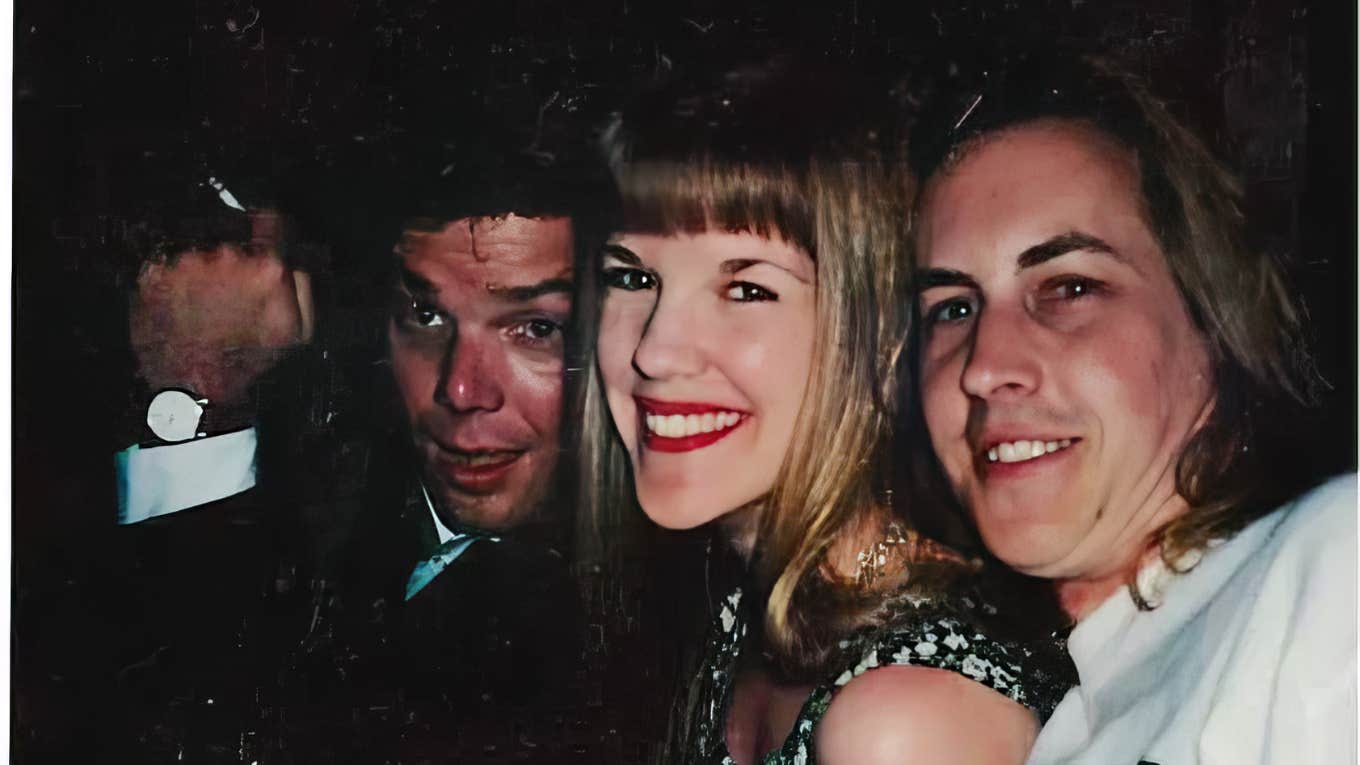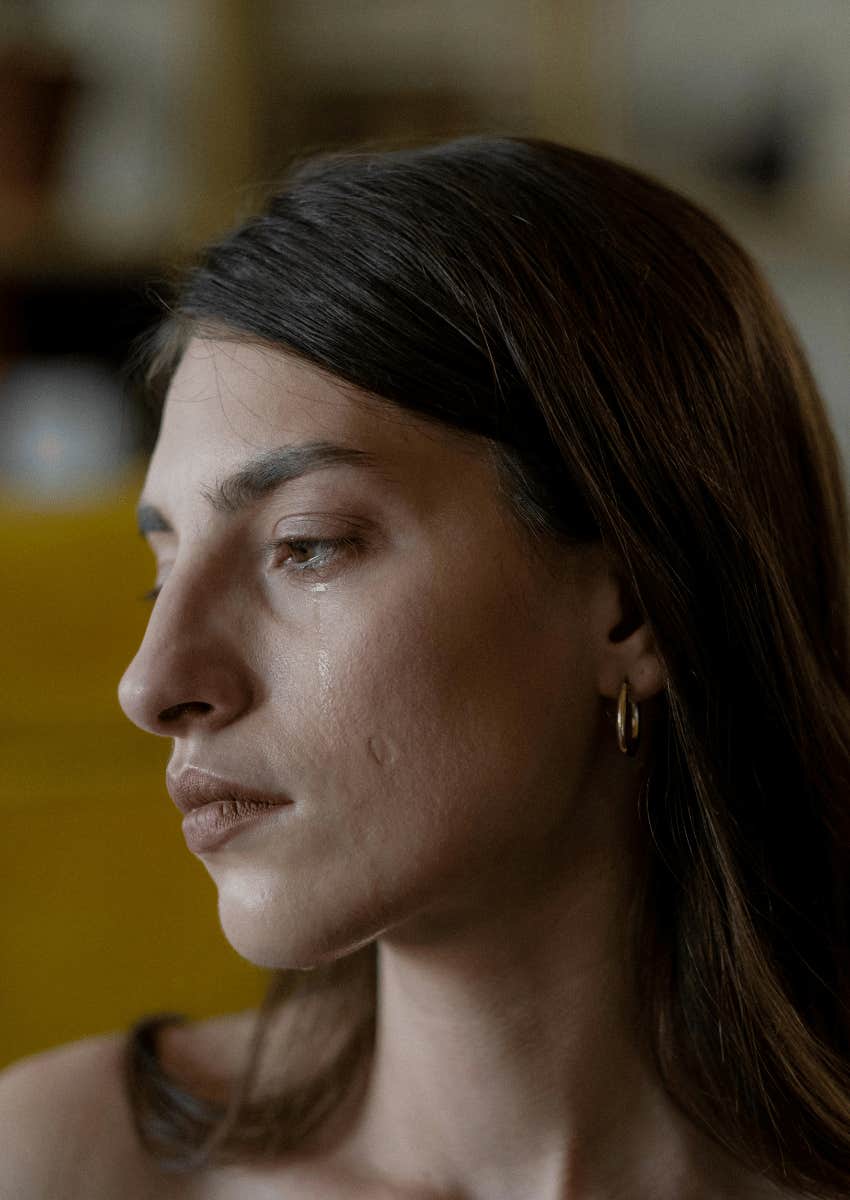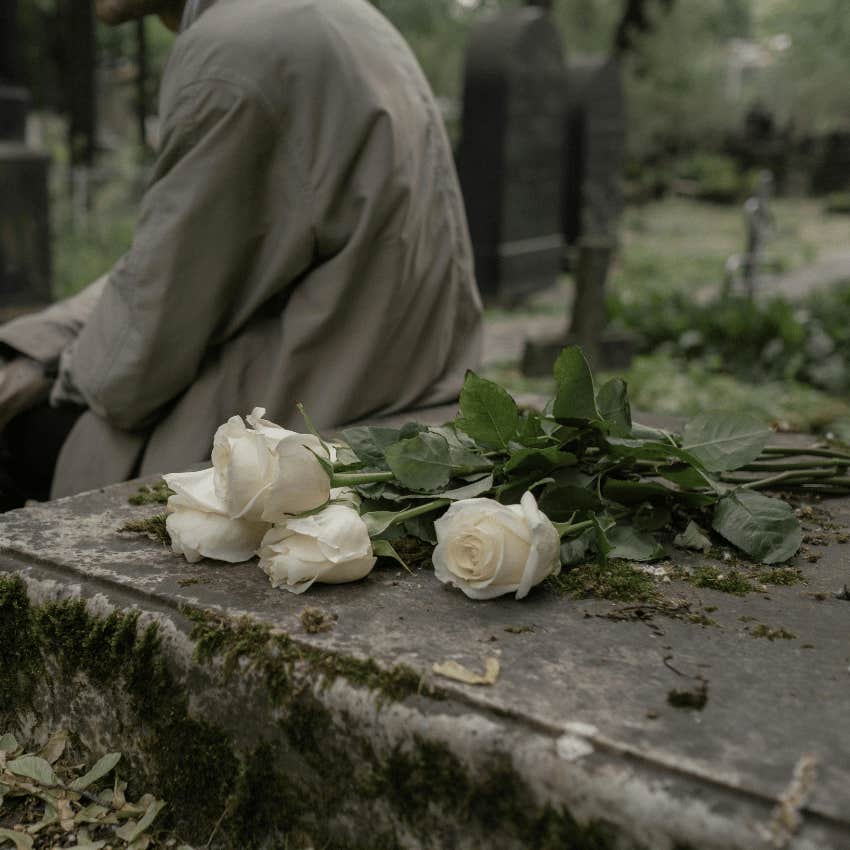9 Things I Learned About Grief That Will Get You Through The Worst Of It (I Promise)
Those of us who grieve have different stories and beliefs, but we travel similar bumpy paths.
 Courtesy Of Author
Courtesy Of Author When I was 24, my boyfriend John fell down an elevator shaft and died. He was 29. The jolt of that loss created a fissure in my life as it was just getting started. Before, after.
John was the closest person to me. His death was so devastating and disorienting that I wanted to go with him, wherever it was he went. Pain consumed me and I feared it might get worse. It did, for a while, and then it eased, slowly.
In time, I adjusted to a world without John. It was a rough road, but I hung on, white-knuckling through the worst and fumbling through the rest. Much of what I experienced is not unique. Those of us who grieve have different stories and beliefs, but we travel similar bumpy paths.
I’m sharing my learnings and observations with you in hopes they offer comfort. Bottom line: You’ll get through this. And you’re not as alone as you think.
The nine things I learned about grief that will get you through the worst stages:
1. Week one is a rapid journey through hell
 cottonbro studio | Pexels
cottonbro studio | Pexels
First, it feels like someone knocked the wind out of you. Some people fall to the floor, screaming from the impact of the punch. Some people throw up. Some stare at the wall, stone-faced. However you react, it’s normal.
You won’t have much time to recover from the initial wallop, though, before you’re faced with a litany of tasks. You may have to plan a memorial service and/or funeral. You might have to attend to the deceased’s empty house, finances, stacks of bills, or children. You might have to write an obituary, field phone calls from friends and family, and answer the door when people show up with food.
If you’re free from these responsibilities, you might get more attention than you’re used to at a really bad time. You might have to attend a funeral and/or memorial service. To do that, you might have to book a flight, find a place to stay and pack.
During this busy phase, you may think you’re managing way better than you thought. Hooray! I dressed myself! That’s one of the advantages of shock. It keeps you numb so you can function — for a little while, at least.
The phone rang around midnight. Several minutes later, Stacey, my roommate, stepped into my bedroom. After making sure I was awake, she said, “John’s been in an accident…He’s dead.”
My ears started to ring. My face flushed. I felt numb as if I had shifted into another reality. And then I felt the impact of the punch. Stacey stayed with me until I was all cried out for the night. She went back to her room. I stared into the dark while an endless stream of memories played in my head.
The rest of the week was a blur of friends, work, phone calls, and a trip to Lafayette, Indiana, to attend the memorial service. Someone rented a minivan, and I climbed in. Someone booked a couple of hotel rooms, and I slept in one. I don’t know how it happened.
Through all these events, I held it together most of the time. It was later, when the phone calls died down, when my friends went on with their lives when I lost my mind.
2. Then insanity sets in
Once the hubbub dies down and the Novocain called shock wears off, an opening appears. Through that opening, the worst emotional pain imaginable raises its pointy head.
Your wound is raw, red, and exposed. The grief is so overwhelming, that you’ll wonder if you’ll survive. Life as you knew it is different now, and that’s disorienting. You may feel needy or distant. Whatever you’re feeling, it’s acceptable.
In The Courage to Grieve, author Judy Tatelbaum writes, “Frequently during this mourning period we may feel irrational, mentally ill, or off balance. We may say or do or imagine out-of-the-ordinary things and think we’re going ‘crazy’. This is not mental illness but a natural part of grief.”
One Saturday afternoon, about nine days after John died, I came home to find a bouquet of purple flowers on my doorstep. My friend Alyson knew. She knew I barely made it home because of a breakdown.
On the way back from some errands, I had stopped at my friend Blair’s house, hoping for comfort. When I noticed his girlfriend’s car in the drive, I sat in the car, feeling worse than before. I didn’t want to disturb them but didn’t know where else to go. So I went home — to flowers.
Acquaintances assumed I was “fine” a few weeks after the loss. The memorial service was over. Time to move on, right? Not even close.
3. Grief will come in waves
After the eye of the storm blows over, you’ll experience periods where you feel like you’re no longer mourning. You may laugh with a friend and feel a rush of relief. You finish a project at work and feel a familiar sense of accomplishment. You’ve turned a corner. Bravo!
Five minutes later, you hear a certain song and fall to pieces. Totally normal. The waves of grief come and go through mourning and beyond. For me, the waves hit for a few years, but they diminished over time. Sometimes it was as if I was reliving those first few days — the memories were as fresh as if they were new.
Other times, I would remember when John and I were together and feel the bittersweet mix of love and loss. I can’t say how long these fluctuations will happen for you but know it’s common.
4. People will surprise you, in good ways and bad
 Pavel Danilyuk | Pexels
Pavel Danilyuk | Pexels
Few people have the strength to be near someone grieving. It’s uncomfortable. They squirm. Not knowing what do to, they do nothing. They avoid you. Unable to tolerate the presence of someone in pain, they say things like “Smile!”
Those who dare to sit with you in that discomfort are your angels. These brave souls may not be your closest friends. It might not be your partner. To the contrary, the people you think you need most might run.
Alyson stayed. Amy stayed. My mom stayed. Others ran. I forgave them (eventually) but it wasn’t easy or immediate.
5. You’ll remember actions, not words
You’ll probably hear, “If you need anything I’m here” a dozen-hundred times. From who, who knows? When the insanity phase passes and your mind clears, you won’t remember the words of sympathy and encouragement. You’ll remember actions.
Almost 30 years later, I remember those purple flowers. I remember when Stacey stayed with me while I soaked her T-shirt. I remember when Blair danced with me to “Hickory Winds.” I remember my then-manager, Missy, permitted me to take as many days off as I needed. With a couple of exceptions, I don’t remember who called or sent cards.
6. You will be tempted to push the pain down — but don't, please don’t
Believe me, grief does not stay buried. If you attempt to stuff it, it will find an opening and rise to the surface in a different and stronger form.
Unresolved or denied grief resurfaces by way of depression, alcohol abuse, drug abuse, overwork, eating disorders, panic attacks, and physical illness. These new manifestations of grief are far more destructive than a healthy period of mourning.
I had never experienced pain like what hit after John’s death. At first, I let the tears flow as they wished. Constant, then sporadically as I got back to my daily routine. But my real, raw feelings were so intense, I thought they would push me over the edge — the edge of what I didn’t know, but it was unfamiliar and dark.
So I stuffed it. To keep it stuffed, I stayed busy. I went back to work after one day off. I went out with my friends almost every night. I stayed drunk most weekends and worked Sundays at a record store. Grief surfaced only in the brief drives home from a bar or right before sleep took over. It wasn’t enough.
Within the year, I was using alcohol to push grief down deeper. I developed anorexia. I worked three jobs. I gave myself no time whatsoever to think. It would take years to face these addictions and dangerous habits, in addition to (finally) working through grief.
So I know it’s hard, but for the good of your health and well-being, reconcile your grief as best you can. If you have the means, talk to a professional. Attend a grief support group. Schedule time to scream into a pillow. Write, draw, whatever it takes to move it through.
7. You’re not alone
Almost everyone on this planet has experienced the awfulness of grief. Your grief is your own, but others know your pain.
I felt like a lone widow when John died. His friends had significant others to lean on. My person was gone. How could they understand?
Those who have experienced profound loss will most likely be the ones who stay with you through the worst of your grief and beyond. In time, you may be the one offering comfort to someone else. Loss and love are intertwined.
8. You won’t feel this awful forever
 cottonbro studio | Pexels
cottonbro studio | Pexels
In time your grief will pass. How much time is an individual thing, but when they’re ready, the clouds will inch far enough across the horizon to reveal a slice of the sun.
Healing is a subtle thing. One day, you realize you can drive at night without weeping. You’re more focused at work. Your old energy level returns. It’s like someone sprayed Windex on your brain.
On the first anniversary of John’s death, I went on a date with someone I met at work. He was kind. I liked him. I drank too much wine, I told him about the anniversary, and he didn’t run away. I wasn’t 100% but I was healed enough to inch forward.
9. You’ll accept but never forget
You may wonder if you’ll ever feel right again. You will. You’ll get on with your life. You’ll feel happiness and joy. You may choose to marry or remarry, or not. You may have children, or not. You may divorce, change jobs, move, or not.
As your life evolves, that grief will remain part of you, like a scar. You can choose to cover it up or show it to others.See this mark here? This is John. I loved him. I got this scar when he died.
I’ve grown to appreciate my scar. It’s given me more empathy. It’s taught me to live for something, rather than hide from things that matter, like love. It’s helped me face fears. It has exposed numerous irrational, negative beliefs. It’s not a pleasant way to learn, but effective.
Next year marks the 30th anniversary of John’s death. I still think of him every year. But instead of longing to go back in time so I can have more with him, I let the memories come and go.
In many ways, I’m grateful for the experience of loving and losing him. Because going through the worst pain ever changed my life. Following all the hangovers, hunger pains, and sadness, I found health and happiness. Through grieving, I gained empathy and sensitivity. Through retreating into myself, I learned how to reach out.
If you’re grieving right now, be kind to yourself. Take your time. I’m here. We’re here.
Heather R. Johnson is a ghostwriter and human writer based in Oakland, California. You can find more of her essays on Medium.

